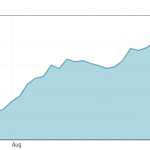Understanding the Difference Between Credit Rating Agencies and Credit Bureaus: An Overview
Credit rating agencies and credit bureaus play crucial roles in evaluating the creditworthiness of entities and individuals, respectively. While credit rating agencies like Fitch Ratings, Moody’s Corporation, and S&P Global assess the financial strength of corporations and their debt offerings, credit bureaus such as Equifax, Experian, and TransUnion collect information on individual consumers to determine their creditworthiness.
Understanding the difference between the two can help individuals make informed financial decisions, whether it’s investing in bonds based on credit agency ratings or applying for loans based on credit bureau reports.
For example, when a company like Company ABC needs to raise money through bond offerings, it hires a credit rating agency like S&P to assess the risk associated with the bonds and the company itself.
On the other hand, when an individual like Amy applies for a mortgage, the lender looks at her credit profiles from credit bureaus to determine her creditworthiness.
Monitoring credit reports and credit scores can help individuals secure better interest rates and financial opportunities.
By being aware of the information collected by credit bureaus and the ratings provided by credit agencies, individuals can make more informed financial decisions and improve their overall financial health.

:max_bytes(150000):strip_icc()/GettyImages-1220313985-50d591cd9d4045f8ae516566cc837a2b.jpg?w=150&resize=150,150&ssl=1)

